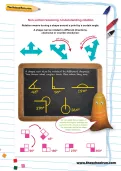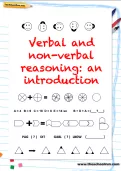Important update from TheSchoolRun
For the past 13 years, TheSchoolRun has been run by a small team of mums working from home, dedicated to providing quality educational resources to primary school parents. Unfortunately, rising supplier costs and falling revenue have made it impossible for us to continue operating, and we’ve had to make the difficult decision to close. The good news: We’ve arranged for another educational provider to take over many of our resources. These will be hosted on a new portal, where the content will be updated and expanded to support your child’s learning.
What this means for subscribers:
- Your subscription is still active, and for now, you can keep using the website as normal — just log in with your usual details to access all our articles and resources*.
- In a few months, all resources will move to the new portal. You’ll continue to have access there until your subscription ends. We’ll send you full details nearer the time.
- As a thank you for your support, we’ll also be sending you 16 primary school eBooks (worth £108.84) to download and keep.
A few changes to be aware of:
- The Learning Journey weekly email has ended, but your child’s plan will still be updated on your dashboard each Monday. Just log in to see the recommended worksheets.
- The 11+ weekly emails have now ended. We sent you all the remaining emails in the series at the end of March — please check your inbox (and spam folder) if you haven’t seen them. You can also follow the full programme here: 11+ Learning Journey.
If you have any questions, please contact us at [email protected]. Thank you for being part of our journey it’s been a privilege to support your family’s learning.
*If you need to reset your password, it will still work as usual. Please check your spam folder if the reset email doesn’t appear in your inbox.
11+ glossary for parents

Our glossary explains the meaning behind the terminology that you’re likely to come across while helping your child get ready for the 11+.
Benchmark test
A test taken to establish whether your child is likely to pass the 11+. These may be provided by the schools that you’re hoping to apply for, or you can buy them from publishers like CGP. If your child has a trial session with a tutor, they may be willing to give them a benchmark test.
Bilateral schools
Schools that accept children of all abilities, but that also have a ‘grammar stream’ made up of pupils who have passed the 11+. These children are educated together in all core subjects, allowing them to work in greater depth than the non-selective students. For example, a school might have 240 places, and allocate 30 of them to children with an 11+ pass.
CEM
One of the two main providers of 11+ tests. Developed by experts at the University of Durham, CEM entrance exams are used by around one third of grammar schools.
CGP
The leading publisher of gold-standard practice materials for the 11+. CGP produces study guides, practice books with assessment tests, practice test papers and 10-minute tests. They also have a limited selection of free resources.
Cloze test
A question type that is commonly used in 11+ tests, where your child has to fill in the blanks in a passage of text. There are two types of cloze test: cloze paragraphs and cloze words.
GL Assessment
The other main provider of 11+ tests. GL Assessment provides entrance tests to around half of all selective schools in the UK. They're sometimes known as NFER tests, after the examining body that helps develop the tests.
Grammar school
Also known as a selective school: a grammar school selects pupils according to academic ability. There are currently 164 grammar schools in England and 69 in Northern Ireland.
Late transfer test (12+/13+)
A test that gives children the opportunity to be admitted to grammar school at the start of Year 8 or Year 9. If your child didn’t pass the 11+, this may provide a second chance, although not all schools offer a late transfer test and those that do typically have very few places up for grabs: often only two or three.
Mock tests
A practice 11+ test taken under exam conditions. Some grammar schools run mock exams to help children get used to what to expect on the day. There are also independent organisations such as Chuckra that hold mock exam days, and tutors will usually give children practice tests under exam conditions. Alternatively, you can give your child mock tests to complete under exam conditions at home.
Multiple choice format
A common question type where children have to select the correct answer from a list of several possibilities.
Non-verbal reasoning
Problem-solving based around pictures, patterns, diagrams and shapes, rather than words. Non-verbal reasoning tests are a key part of most 11+ exams as they test innate problem-solving ability rather than learned knowledge. They involve skills like code-breaking, sequences, mirroring and rotating shapes.
Partially selective schools
Schools that admit a certain number of their places to children who have passed the 11+, and the rest based on factors like distance to the school. For example, they might offer 25% of their places to pupils with an 11+ pass, with the rest going to mixed ability pupils. Unlike in bilateral schools, the children who have passed the 11+ don’t get put into a specific grammar stream; all children are put into sets based on the school’s own assessments in Year 7.
Pass mark
The mark needed on the 11+ test to qualify for a grammar school place. This will differ between schools and areas, and even from year to year. You can usually find out past pass marks by looking at the Admissions section of your chosen school’s website.
Past papers
11+ papers that have been set in previous years. These may be available on your chosen school’s website so your child can familiarise themselves with the exam format and question types, although these will often change from year to year. Tutors also often have access to past papers.
Oversubscription criteria
The admissions criteria that are applied if there are more children who pass the 11+ than places available. For example, if there are 100 places available and 120 children reach the pass mark, the oversubscription criteria will be applied. It may be that the 100 children with the highest marks are admitted, or the 100 that live closest to the school; it’s important to check the admissions criteria for each grammar school you’re applying to.
Raw score
The number of marks a child achieves on an exam paper, such as 230 out of 250 marks. For the purposes of the 11+, raw scores are converted to standardised or scaled scores (see below).
Sample papers
Practise papers that have been put together to help children hone their exam skills ahead of the 11+. Because schools often change the format of their tests from year to year, it’s a good idea to test your child with a range of sample papers so they’re familiar with a range of question types.
Selective school
Also known as a grammar school: a school that selects pupils according to academic ability. Selective schools set a pass mark for their 11+ exam and aim to offer places to all children who achieve that mark.
Standard answer
A type of question that requires a written answer, rather than multiple choice. These are common in 11+ exams, particularly in English and maths papers.
Standardised/scaled scores
Your child’s 11+ raw score will be converted to a standardised or scaled score. This involves weighting their score according to their date of birth, so that children who are younger in their school year are not disadvantaged compared to older pupils.
Super-selective school
A super-selective school is a grammar school that doesn’t have an 11+ pass mark, but allocates places to the highest scoring children each year. If they have 120 places to fill, they will allocate them to the 120 children who scored highest on the test. You can find out the lowest score to be admitted in the past few years on the school’s website; this will help you work out whether your child has a realistic chance of getting a place.
Tutor-proof test
A tutor-proof test is one that has been developed so that children supposedly can’t be coached to pass it. The theory is that it tests innate cognitive ability, so that children who aren’t tutored have as much chance of passing as those who are. In reality, a truly tutor-proof test might be impossible to achieve, but schools and admission authorities do their best to make tests tutor-proof by changing the format and question types year on year.
Verbal reasoning
A type of problem-solving based around words and language. Verbal reasoning questions are part of most 11+ tests, and involve thinking about text, solving word problems, following written instructions, breaking letter-based codes, and so on.
Vocabulary
The bank of words that children know, understand and are able to use. A wide vocabulary is important for succeeding in the 11+; download free 11+ vocabulary flashcards from TheSchoolRun to kick-start your child's practice.


Prepare For The 11+ Exam
- Essential English and maths skills
- Verbal and non-verbal reasoning questions
- Reading comprehension & CLOZE tests







